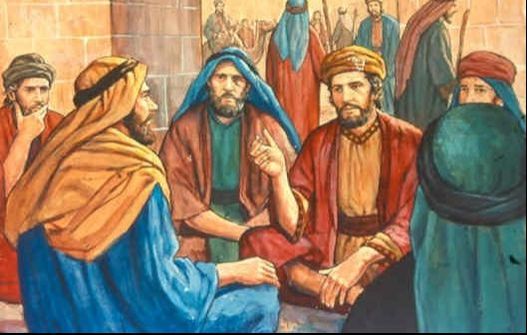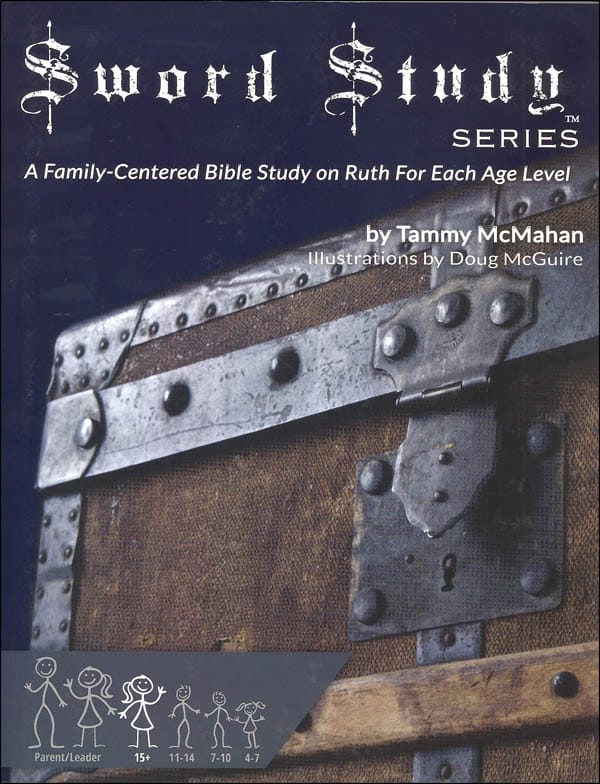Too Great a Cost2/22/2017 Before we get into our first study in Ruth 4, let’s take a look at the beginning of verse one. “Now Boaz had gone up to the gate and sat down there. And behold, the redeemer, of whom Boaz had spoken, came by.” Sound familiar? It should. We’ve seen this phrase before in chapter two and looked at the difference between coincidence and providence, and we’ve seen that in God’s kingdom nothing falls to chance. Now here we have the same phase again as the other redeemer came by the gate at the right time and Boaz was able to promptly settle business with him. God’s timing is always perfect! Now on to today’s study… “Then he said to the redeemer, ‘Naomi, who has come back from the country of Moab, is selling the parcel of land that belonged to our relative Elimelech. So I thought I would tell you of it and say, “Buy it in the presence of those sitting here and in the presence of the elders of my people.” If you will redeem it, redeem it. But if you will not, tell me, that I may know, for there is no one besides you to redeem it, and I come after you.’ And he said, ‘I will redeem it.’ Then Boaz said, ‘The day you buy the field from the hand of Naomi, you also acquire Ruth the Moabite, the widow of the dead, in order to perpetuate the name of the dead in his inheritance.’ Then the redeemer said, ‘I cannot redeem it for myself, lest I impair my own inheritance. Take my right of redemption yourself, for I cannot redeem it.’” ~Ruth 4:3-6 Why did the other kinsman change his mind? We see that when Boaz first broaches the subject of buying Naomi’s property, the other redeemer jumps at the chance. However, once the fine print was laid out and he found out that marriage to Ruth came with the deal, he immediately backed out. Why? Why did he want the land, but once Ruth was added to the picture, he rejected it? What was so distasteful about marrying Ruth? She was a pretty, young woman who had an excellent reputation among the Ephrathites. It doesn’t appear that he was married, so that couldn’t have been an issue. So what was the issue? The cost was too great. The other kinsman was more than willing to acquire more land and purchase what was Elimelech’s, but he was unwilling to take on the responsibility if it cost him too much. It wasn’t a money issue, but a long-term possession and materialism issue. He was concerned about forfeiting his inheritance to a son raised under a different man’s name. In short, the other kinsman was too focused on the earthy trivialities of inheritance. He wasn’t focusing on the things of God. Now we look at this story and at the law of the levirate marriage found in Deuteronomy 25 and think it is different, unconventional, and a little weird. So we kind of understand the other redeemer’s perspective and reasoning. I know I wouldn’t want to buy or redeem land if I knew it meant I had to marry a complete stranger! However, the levirate marriage was God’s will and plan for the perpetuation of His people and provision for the widows. So while the other kinsman viewed it as inconvenient and we may think it odd, it was God’s will. And one should never mess with or go against God’s clearly dictated plans! Boaz understood this and was unafraid to jeopardize his own heritage in order to do the right thing. He could have had the same excuse as his fellow kinsman, but he didn’t, and God blessed him. Throughout the Bible and its genealogies, Obed is never referred to as Mahlon’s son even though by Jewish law he would considered to be, but is always recorded as the son of Boaz—the son who fathered Jesse, who fathered David. Because Boaz was obedient to God’s will and was unafraid to redeem Ruth and give her everything, God blessed Him and placed him as the great-grandfather of David and direct ancestor of Jesus. On the other hand, the other kinsman, who was unwilling to sacrifice his earthly inheritance, has been completely forgotten. We don’t even know his name. So the question for us is…will we be like Boaz or like the other redeemer? When following God’s will requires sacrifice and risk, will we obey or will we view the cost too great? Consider our Redeemer and the choice placed before Him: follow God’s will and lay down Your life for the sinful people or stay with the Father in glory. Praise God that Jesus did not consider our cost of redemption too great, but was willing to sacrifice everything and share His eternal inheritance with a sinful people! If Christ did all this for us, how can we not give Him all that we have and are?! And remember, God never asks us to give up or lose something that is greater than what He has in store for us. So may we take to heart and follow this command of our Redeemer and never consider the cost too great. “If anyone would come after me, let him deny himself and take up his cross daily and follow me. For whoever would save his life will lose it, but whoever loses his life for my sake will save it.”
~Luke 9:23-24
Comments
|
Ruth Sword StudyReceive Posts by EmailCategories
All
Archives
March 2017
|


 RSS Feed
RSS Feed